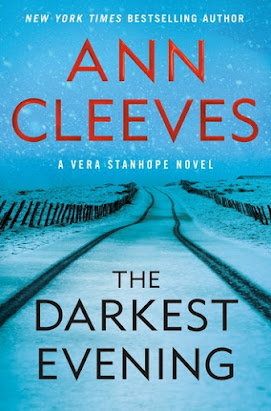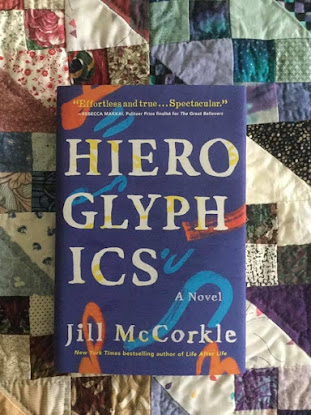My library book club's choice this month was Eowyn Ivey's The Snow Child, a novel that had been sitting on my TBR shelf for some time. I was happy to finally read it, especially as I had read and reviewed her second novel, To The Bright Edge of the World through NetGalley.It turns out that The Snow Child interrupted Ivey's writing of that novel. She caught a story and couldn't let it go.
I had heard so much positive buzz about this book! Then, it was nominated for the Pulitzer Prize in literature!
The book clubbers all enjoyed reading The Snow Child, one saying she didn't expect to like it but was 'hooked'. Several enjoyed it, but thought it would be a 'one time read.' Another labeled the novel as a 'historical romance fantasy.'
The readers loved the descriptive writing of the Alaskan landscape, one saying nature itself became a character in the book. A reader was impressed by the realistic exploration of childlessness and the challenges of marriage.
Of course, there was great debate over the tension between realism and fantasy in the novel, the question of the nature of Faina, the 'Snow Child' who appears out of the snow and is adopted by the childless, middle-aged homesteaders, Mabel and Jack. Is she real? Is she a magical being? Is she human? We wondered about Faina's killing of a swan and her use of the feathers on her wedding dress. Was she the swan? Was the swan her burgeoning sexuality or attachment to the wild and free life?
Faina is at home in the wild where she is free and independent. Jack and Mabel lure her into their lives, but she disappears over the summers. She seems trapped between two worlds. When her need for companionship results in circumstances that will keep her from her wild and free world, she fails.
We talked about this being a feminist novel. The childless homesteader wife Mabel had lost her her one baby. She thought that by leaving the East for Alaska, she and her husband would be equal partners. It takes her husband's incapacitation to allow her to become a full partner.
Mabel begins in isolation, alienated from her back-home sister and family, and alone in Alaska. When the neighboring family barge into her life with their good-natured willingness to help out and socialize, being in community literally is a life saver. The neighboring wife wears men's pants and displaying a competent, almost joyous, attitude in her ability to wrest success from the inhospitable wilderness. We talked about the importance of community in the book and during this pandemic when everyone is isolated at home.
Later, I realized we had not even touched on the homesteader husband, Jack. At first, he tried to protect Mabel from the hard work he endured, not asking for her help resulting in alienating her. He follows Faina and discovers her secret home and history. It is Jack who protects Faina's companion fox and later fiercely defends her innocence.
There is hardship and sorrow, personal growth and joy, realism and magic to be found in these pages.
The Snow Child was a lovely book club selection.
The Snow Child
by Eowyn Ivey
Reagan Arthur Book/Little, Brown and Company
from the publisher
Alaska, 1920: a brutal place to homestead, and especially tough for recent arrivals Jack and Mabel. Childless, they are drifting apart--he breaking under the weight of the work of the farm; she crumbling from loneliness and despair. In a moment of levity during the season's first snowfall, they build a child out of snow. The next morning the snow child is gone--but they glimpse a young, blonde-haired girl running through the trees. This little girl, who calls herself Faina, seems to be a child of the woods. She hunts with a red fox at her side, skims lightly across the snow, and somehow survives alone in the Alaskan wilderness. As Jack and Mabel struggle to understand this child who could have stepped from the pages of a fairy tale, they come to love her as their own daughter. But in this beautiful, violent place things are rarely as they appear, and what they eventually learn about Faina will transform all of them. (




















































